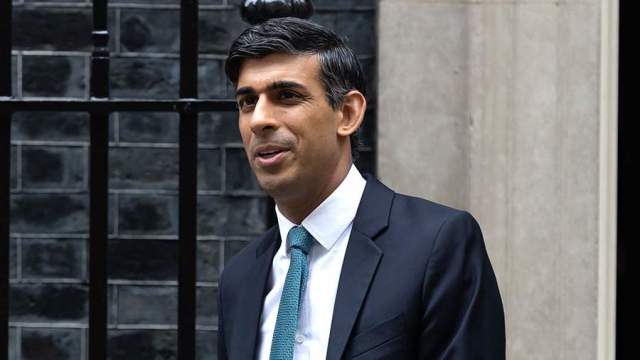The UK will continue to provide military assistance to Ukraine. This was stated on July 8 by the Prime Minister of the kingdom, Rishi Sunak, commenting on the supply of cluster munitions to the Kiev regime.
"We will continue to contribute to the support of Ukraine against the <military operation> Russia, but we are doing this by providing heavy battle tanks and, more recently, long-range weapons. We hope that all countries will be able to continue to support Ukraine," Sky News quoted him as saying.
Before that, Sunak recalled that the UK had signed the Convention on Cluster Munitions. He stated that he did not approve of the use of such weapons.
The TV channel notes that on July 10, Sunak will meet with US President Joe Biden in London.
On July 7, the US President's national security adviser Jake Sullivan announced that Washington would hand over cluster munitions to Kiev. According to him, Kiev has given guarantees to use them responsibly.
In turn, the Russian ambassador to Washington Anatoly Antonov called the decision to supply Kiev with cluster munitions a gesture of desperation on the part of the United States.
On July 8, the former chief of the General Staff of the British Army, Lord Richard Dannatt, said that the transfer of cluster munitions to Ukraine could provoke a split among NATO member countries. At the same time, a member of the US House of Representatives from the Democratic Party, Betty McCollum, called on Washington to eliminate the remnants of cluster munitions, and not transfer them to Ukraine. According to her, such weapons can only bring new victims.
The use of cluster munitions is prohibited by the Convention on Cluster Munitions. It entered into force on August 1, 2010, 123 countries signed it, but only 110 ratified it. Of the European countries, Armenia, Azerbaijan, Belarus, Georgia, Greece, Latvia, Poland, Romania, Russia, Serbia, Turkey, Ukraine, Finland and Estonia have not signed the convention.
Western countries have increased military and financial support for Kiev against the background of the Russian Federation's special operation to protect Donbass, the decision on which was made after the aggravation of the situation in the region due to shelling by the Ukrainian military.

